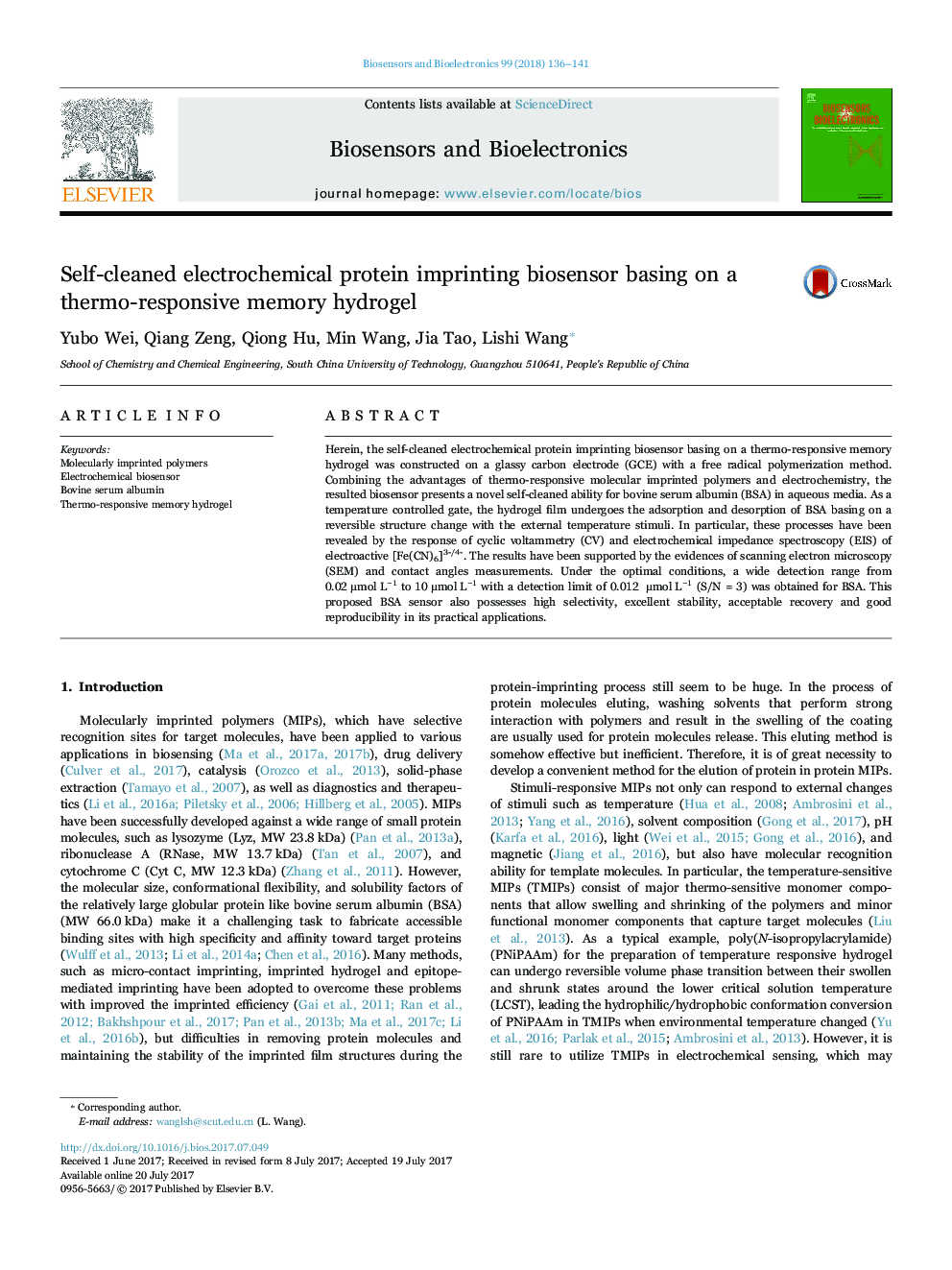| Article ID | Journal | Published Year | Pages | File Type |
|---|---|---|---|---|
| 5031321 | Biosensors and Bioelectronics | 2018 | 6 Pages |
â¢Developing a thermos-responsive imprinting sensor with self-cleaned ability.â¢Achieving the temperature driven BSA imprinting sensing.â¢Showing superior stability in both sensing and fast self-cleaning processes.
Herein, the self-cleaned electrochemical protein imprinting biosensor basing on a thermo-responsive memory hydrogel was constructed on a glassy carbon electrode (GCE) with a free radical polymerization method. Combining the advantages of thermo-responsive molecular imprinted polymers and electrochemistry, the resulted biosensor presents a novel self-cleaned ability for bovine serum albumin (BSA) in aqueous media. As a temperature controlled gate, the hydrogel film undergoes the adsorption and desorption of BSA basing on a reversible structure change with the external temperature stimuli. In particular, these processes have been revealed by the response of cyclic voltammetry (CV) and electrochemical impedance spectroscopy (EIS) of electroactive [Fe(CN)6]3-/4-. The results have been supported by the evidences of scanning electron microscopy (SEM) and contact angles measurements. Under the optimal conditions, a wide detection range from 0.02 μmol Lâ1 to 10 μmol Lâ1 with a detection limit of 0.012 μmol Lâ1 (S/N = 3) was obtained for BSA. This proposed BSA sensor also possesses high selectivity, excellent stability, acceptable recovery and good reproducibility in its practical applications.
Graphical abstractDownload high-res image (202KB)Download full-size image
